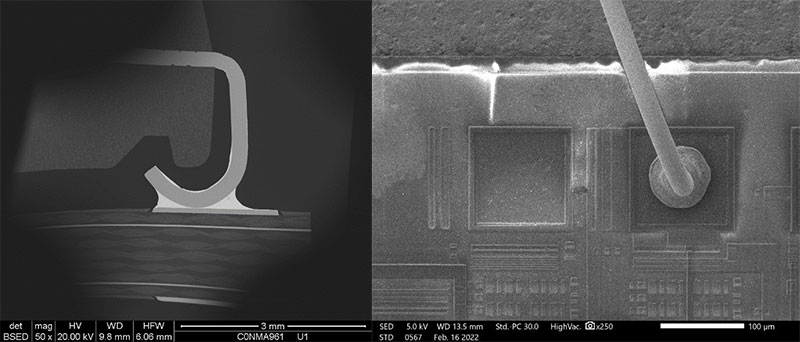Testing Confirms that Component Reliability Remains With Proper Long-Term Storage
You’ve likely heard of Rochester Electronics and its unique business model that provides active and end-of-life semiconductors that are 100% authorized and traceable. Lately, there have been questions about the quality of parts stored “long-term” and whether the quality and reliability remain after a product’s date code. Semiconductor component date codes originated in the 1940s to maintain traceability based on manufacturing or seal dates, processes, and bill of materials, and typically include a 2-3 year “sell by” date.
Well, suppliers and manufacturers in the industry had the same questions. After extensive testing, rest assured that these parts maintain their integrity for years past their date code when stored properly.
One accepted measure of the quality and reliability of components in the field is solderability after long-term storage. To determine the quality of aged semiconductor components in real-world applications, Rochester Electronics performed an analysis on solderability by using an industry-standard board mount with solder paste and a reflow manufacturing process.
In its first study, Rochester used the services of an independent 3rd-party electronic manufacturing company experienced in PCB assembly to undertake the assembly and testing process. The contract assembly house is fully ISO-9001 certified and has over 17 years of experience. A random selection of components with 57 different date codes was selected, with ages ranging up to 17 years.
In a second study, the Quality and Reliability teams at Rochester performed analyses of package internal integrity, component-PCB solder joint quality, and electrical test results on components that had been stored for up to 17 years.

How did they analyze and test these products and the factors listed above?
- X-Ray Imaging and Automated Optical Inspection; to investigate the quality of the solder joints.
- Scanning Electron Microscopy and X-Ray imaging; to visualize all internal connections and rule out internal damage.
- Acid and Laser Decapsulation; to expose the die in the package and examine for defects.
- Cross-Sectioning; to have analysis from another view plane.
- Functional and Electrical Timing Tests; to verify the component met the specs set by the manufacturer as laid out in the device's datasheet.

Summarized findings concluded that all components maintained functionality, integrity, and robustness of internal and external connections. For more information on the testing Rochester conducted, check out their blog.
Texas Instruments has conducted extensive product reliability testing that shows components, and their assets, maintain their integrity and functionality significantly greater than 21 years when stored properly. They conducted ESD testing, packaging material evaluations, tape peel strength, solderability, and more. To see the details outlined, take a look at their white papers on Long Term Storage and Component Reliability.
These companies’ diligent research has demonstrated that long-term storage does not necessarily result in product degradation. They have found that not only can we maintain trust in stored components, but in these companies as well. Each company is ensuring the end customer is receiving only the highest quality of components to prevent downtime and keep their applications running, even decades after the parts were last manufactured. Date code restrictions are not the only indicator of component quality and may prevent the use of perfectly operational components.

Have questions or comments? Continue the conversation on TechForum, DigiKey's online community and technical resource.
Visit TechForum







